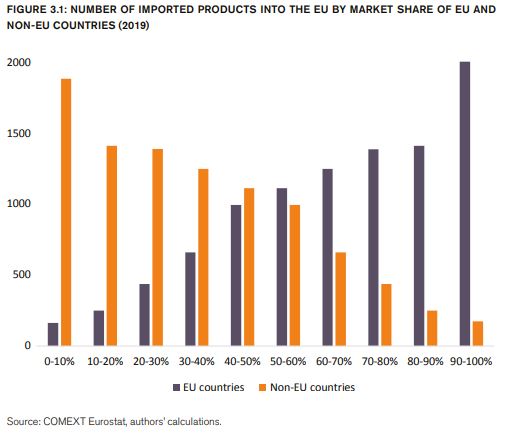NEW PAPER ALERT  https://abs.twimg.com/emoji/v2/... draggable="false" alt="🤟" title="Geste „ich liebe dich“" aria-label="Emoji: Geste „ich liebe dich“">
https://abs.twimg.com/emoji/v2/... draggable="false" alt="🤟" title="Geste „ich liebe dich“" aria-label="Emoji: Geste „ich liebe dich“"> https://abs.twimg.com/emoji/v2/... draggable="false" alt="🙌" title="Raising hands" aria-label="Emoji: Raising hands">
https://abs.twimg.com/emoji/v2/... draggable="false" alt="🙌" title="Raising hands" aria-label="Emoji: Raising hands"> https://abs.twimg.com/emoji/v2/... draggable="false" alt="🙌" title="Raising hands" aria-label="Emoji: Raising hands">
https://abs.twimg.com/emoji/v2/... draggable="false" alt="🙌" title="Raising hands" aria-label="Emoji: Raising hands"> https://abs.twimg.com/emoji/v2/... draggable="false" alt="🙌" title="Raising hands" aria-label="Emoji: Raising hands">
https://abs.twimg.com/emoji/v2/... draggable="false" alt="🙌" title="Raising hands" aria-label="Emoji: Raising hands"> https://abs.twimg.com/emoji/v2/... draggable="false" alt="🥁" title="Drum" aria-label="Emoji: Drum">
https://abs.twimg.com/emoji/v2/... draggable="false" alt="🥁" title="Drum" aria-label="Emoji: Drum"> https://abs.twimg.com/emoji/v2/... draggable="false" alt="🥁" title="Drum" aria-label="Emoji: Drum">
https://abs.twimg.com/emoji/v2/... draggable="false" alt="🥁" title="Drum" aria-label="Emoji: Drum"> https://abs.twimg.com/emoji/v2/... draggable="false" alt="🍿" title="Popcorn" aria-label="Emoji: Popcorn">
https://abs.twimg.com/emoji/v2/... draggable="false" alt="🍿" title="Popcorn" aria-label="Emoji: Popcorn"> https://abs.twimg.com/emoji/v2/... draggable="false" alt="🍿" title="Popcorn" aria-label="Emoji: Popcorn">
https://abs.twimg.com/emoji/v2/... draggable="false" alt="🍿" title="Popcorn" aria-label="Emoji: Popcorn"> https://abs.twimg.com/emoji/v2/... draggable="false" alt="🍿" title="Popcorn" aria-label="Emoji: Popcorn">
https://abs.twimg.com/emoji/v2/... draggable="false" alt="🍿" title="Popcorn" aria-label="Emoji: Popcorn">
@flo_forsthuber and I have a paper on Globalization, Re-Shoring & Covid-19. This paper is relevant for strategic autonomy. A thread with gifs as a short introduction to the paper. Twitter do your magic! https://ecipe.org/publications/globalization-makes-us-more-resilient/">https://ecipe.org/publicati...
@flo_forsthuber and I have a paper on Globalization, Re-Shoring & Covid-19. This paper is relevant for strategic autonomy. A thread with gifs as a short introduction to the paper. Twitter do your magic! https://ecipe.org/publications/globalization-makes-us-more-resilient/">https://ecipe.org/publicati...
The paper starts with an unashamed defence on Globalization. All countries need imports: the surge in demand for medical goods was too high for everyone; going alone is unrealistic; and if countries start producing some goods rather than importing them, it will cost them more
The world has become more open. Countries opened up their markets and kept most of these liberalising measures. Many restrictive measures were cancelled because these export restriction measures do not work well with supply chains.  https://abs.twimg.com/emoji/v2/... draggable="false" alt="🌏" title="Asien-Australien auf dem Globus" aria-label="Emoji: Asien-Australien auf dem Globus">
https://abs.twimg.com/emoji/v2/... draggable="false" alt="🌏" title="Asien-Australien auf dem Globus" aria-label="Emoji: Asien-Australien auf dem Globus"> https://abs.twimg.com/emoji/v2/... draggable="false" alt="🌏" title="Asien-Australien auf dem Globus" aria-label="Emoji: Asien-Australien auf dem Globus">
https://abs.twimg.com/emoji/v2/... draggable="false" alt="🌏" title="Asien-Australien auf dem Globus" aria-label="Emoji: Asien-Australien auf dem Globus"> https://abs.twimg.com/emoji/v2/... draggable="false" alt="🌏" title="Asien-Australien auf dem Globus" aria-label="Emoji: Asien-Australien auf dem Globus">
https://abs.twimg.com/emoji/v2/... draggable="false" alt="🌏" title="Asien-Australien auf dem Globus" aria-label="Emoji: Asien-Australien auf dem Globus"> https://abs.twimg.com/emoji/v2/... draggable="false" alt="👏" title="Applaus-Zeichen" aria-label="Emoji: Applaus-Zeichen">
https://abs.twimg.com/emoji/v2/... draggable="false" alt="👏" title="Applaus-Zeichen" aria-label="Emoji: Applaus-Zeichen"> https://abs.twimg.com/emoji/v2/... draggable="false" alt="👏" title="Applaus-Zeichen" aria-label="Emoji: Applaus-Zeichen">
https://abs.twimg.com/emoji/v2/... draggable="false" alt="👏" title="Applaus-Zeichen" aria-label="Emoji: Applaus-Zeichen"> https://abs.twimg.com/emoji/v2/... draggable="false" alt="👏" title="Applaus-Zeichen" aria-label="Emoji: Applaus-Zeichen">
https://abs.twimg.com/emoji/v2/... draggable="false" alt="👏" title="Applaus-Zeichen" aria-label="Emoji: Applaus-Zeichen">
And now the empirics: we gather five million observations of intra and extra EU imports for you. We shake all the data and came up with an analysis to answer the following question. Is the EU too dependent on other countries?
Why is this important? Because if there was to be another Covid-19 which impact your main supplier of an essential good, your economy will be impacted too. So, you want to have a diversified source of imports. That’s the argument behind re-shoring.
We believe that if the EU wants to diversify it should look at EU intra and extra imports. In the case of a pandemic, the EU MS will have to close their factories at the same time. We are thinking here about symmetric shocks which come unexpectedly. Like a visit from your in-laws
Then this graph speaks volumes. Most of the EU trade is within the single market. There are still more than 400 products for which non-EU countries supply more than 80% of all EU imports.
There is additional analysis of these 400 products and who provide them. And you might be there for a surprise. But for that, you need to read the paper.  https://abs.twimg.com/emoji/v2/... draggable="false" alt="🙏" title="Folded hands" aria-label="Emoji: Folded hands">
https://abs.twimg.com/emoji/v2/... draggable="false" alt="🙏" title="Folded hands" aria-label="Emoji: Folded hands"> https://abs.twimg.com/emoji/v2/... draggable="false" alt="🙏" title="Folded hands" aria-label="Emoji: Folded hands">
https://abs.twimg.com/emoji/v2/... draggable="false" alt="🙏" title="Folded hands" aria-label="Emoji: Folded hands"> https://abs.twimg.com/emoji/v2/... draggable="false" alt="🙏" title="Folded hands" aria-label="Emoji: Folded hands">
https://abs.twimg.com/emoji/v2/... draggable="false" alt="🙏" title="Folded hands" aria-label="Emoji: Folded hands"> https://abs.twimg.com/emoji/v2/... draggable="false" alt="🙏" title="Folded hands" aria-label="Emoji: Folded hands">
https://abs.twimg.com/emoji/v2/... draggable="false" alt="🙏" title="Folded hands" aria-label="Emoji: Folded hands">
Between other things, we found that imports from abroad  https://abs.twimg.com/emoji/v2/... draggable="false" alt="⬇️" title="Pfeil nach unten" aria-label="Emoji: Pfeil nach unten">the concentration of the largest providers,
https://abs.twimg.com/emoji/v2/... draggable="false" alt="⬇️" title="Pfeil nach unten" aria-label="Emoji: Pfeil nach unten">the concentration of the largest providers,  https://abs.twimg.com/emoji/v2/... draggable="false" alt="⬆️" title="Pfeil nach oben" aria-label="Emoji: Pfeil nach oben"> diversification of imports and makes the EU
https://abs.twimg.com/emoji/v2/... draggable="false" alt="⬆️" title="Pfeil nach oben" aria-label="Emoji: Pfeil nach oben"> diversification of imports and makes the EU  https://abs.twimg.com/emoji/v2/... draggable="false" alt="⬇️" title="Pfeil nach unten" aria-label="Emoji: Pfeil nach unten"> vulnerable to symmetric shocks.
https://abs.twimg.com/emoji/v2/... draggable="false" alt="⬇️" title="Pfeil nach unten" aria-label="Emoji: Pfeil nach unten"> vulnerable to symmetric shocks.
We did the same analysis for 118 Covid-19 related medical goods There is no support for re-shoring of these goods back to the EU There was no single product from where a non-EU country capture more than 80% of EU total imports And in all products the EU has at least 20% ofimports
Summary: (1) most countries have opened their markets; (2) global value chains have delivered; (3) The answer to a symmetric shock is not to concentrate more production within Europe, (4) re-shoring of economic activities cannot be justified on the grounds of improving resilience

 Read on Twitter
Read on Twitter


